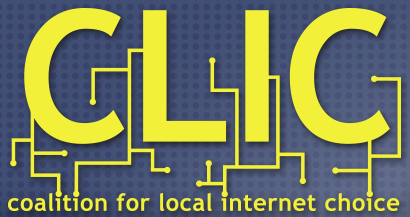
Fast, affordable Internet access for all.

At this year's Broadband Communities Summit in Austin, Texas, the Coalition for Local Internet Choice (CLIC) hosted a special program on April 30th. As part of the program, Blair Levin presented the keynote address. His comments focused on the process used by the FCC's Broadband Deployment Advisory Committee (BDAC) as they examine connectivity in the U.S. and make recommendations on the best ways to expand deployment.
Levin is a strong, open minded advocate for universal broadband access. He's currently Non-Resident Senior Fellow from the Metropolitan Policy Project at the Brookings Institution, but he's also Executive Director of GigU and advises both private and public organizations. Levin has held past stints at the Aspen Institute and the FCC where he oversaw the development of the National Broadband Plan; he's filled many other roles throughout his career. Levin's many years in public, private, and academic sectors have given him experience and an understanding of a wide range of challenges. He’s also obtained a keen insight into possible outcomes. In his keynote address, Levin predicted that the current BDAC process needs to be improved or wealth will find its way to private enterprises with nothing to gain for the public.
In his speech, Levin noted his own experiences with both local and federal governments and that the former were typically “responsive, pro-active, effective and respected in building communities that improve the lives of their residents.” He goes on to state that he believes that local governments need more authority and freedom if we are to move the country forward.
Levin believes that the BDAC is a good idea — bringing multiple stakeholders in the conversation on how we can deploy broadband faster in the U.S. After all, whether we rely more on wireless solutions or FTTP, we need to deploy more fiber and do it faster and more efficiently. He also believes that it’s important to achieve a balance when considering best practices due to the intimidating economics of network deployment. He also goes on to note that there has been some value achieved from BDAC, including the recommendation that states adopt one touch make ready policies.
In his speech, Levin addressed in detail what he considered the failings of BDAC, particularly as they related to its approach to asymmetry.
The FCC’s biggest mistake, however, is how they approach asymmetry.
I am often a big fan of asymmetry. In ten years of practicing corporate law, as well as in being involved with dozens of deals between cities and next generation network providers during the heart of the Gig.U effort, I saw how every successful deal involves asymmetric value creation.
That is, the two sides don’t want the same thing.
So the trick is to find the things that cost side A very little that create a lot of value for side B with side B doing the same for side A. Both, in this way, get more than they give.
That asymmetry of value creation is hugely powerful. The BDAC, however, ignored this kind of value creation.
But there is also a peril to asymmetry and you can see it how the BDAC creates a complete asymmetry of rights, obligations and risk allocation.
Read the rest if Blair Levin’s remarks at the CLIC program here.
You can also listen to Levin and Christopher discuss public and private ownership of Internet network infrastructure in episode 132 of the Community Broadband Bits podcast.
CLIC on It!
If you’re not already a member, consider joining CLIC. There’s no membership fee or requirements, only that you have an interest in local authority and believe that Internet access is a necessity rather than a luxury. Members come from all sectors, walks of life, and areas of the country.
CLIC operates on three guiding principles:
The Internet Is Essential 21st Century Infrastructure: Modern broadband Internet networks are essential infrastructure in the 21st century economy. Access to modern broadband infrastructure is vital in ensuring that all communities – rural, tribal, and urban – can access opportunity and participate fully in community life.
Local Communities Are the Lifeblood of America: America is built on its great communities. Towns, counties, and cities are where economic activity and civic engagement live — and communities recognize modern broadband Internet infrastructure as essential to enable such economic and democratic activity.
Communities Must Be Able to Make Their Own Choices: Local choice enables local self-reliance and accountability. Local choice enables local innovation, investment, and competition. Local communities, through their elected officials, must have the right and opportunity to choose for themselves the best broadband Internet infrastructure for their businesses, institutions, and residents. Federal broadband policies must prioritize local choice and provide local communities full, unhindered authority to choose their own broadband future.
You can receive the latest news and access resources at their website, localnetchoice.org. As a member, you're also one of the first to learn about events, such as the CLIC Program at the Broadband Communities Summit.
Sign-up online and connect with CLIC on Twitter.

